Photographs: Reuters Dilip Kumar Jha in Mumbai
FAO forecast of generally tight situation for most crops and commodities over next 18 months.
Consumers are unlikely to get relief from high food prices till December 2012, despite a modest increase in global foodgrain production.
High and volatile agricultural commodity prices are likely to prevail for the rest of this year and into 2012, says a report of the Food and Agriculture Organisation of the United Nations.
The next few months would determine how the major crops fare.
. . .
Bad news! World food prices to remain high
Photographs: Reuters
Although prospects are encouraging in some countries such as the Russian Federation and Ukraine, weather conditions, featuring too little and in some cases too much rain, could hamper maize and wheat yields in Europe and North America.
"The general situation for agricultural crops and food commodities is tight, with world prices at stubbornly high levels, posing a threat to many low-income food deficit countries," according to David Hallam, director of FAO's markets and trade division.
International food prices, which earlier this year soared to levels seen in the 2007-08 food crisis, dropped a meagre one per cent in May.
. . .
Bad news! World food prices to remain high
The FAO Food Price Index averaged 232 points in May from a revised estimate of 235 points in April but was still 37 per cent above May 2010.
Declines in international prices of cereals and sugar were responsible for the slight decrease in the May index, more than offsetting increases in meat and dairy prices.
Prospects
Current prospects for cereals in 2011 point to a record harvest of 2,315 million tonnes, a 3.5 per cent increase over 2010 and a marginal one per cent drop over 2009.
The increase in world production in 2011 should ease the tight market but won't replenish stocks sufficiently.
FAO's first forecast for world cereal production in 2011 points to a record, indicating a rebound of 3.5 per cent after a slight one per cent decline in 2010.
. . .
Bad news! World food prices to remain high
Expectations of yield recoveries and larger plantings are the main reasons for the increase.
The first forecast for total cereal utilisation in 2011-12 points to an increase of 1.4 per cent from 2010 -11, compared with a two percent rise in 2010-11, as a result of a slowing in the rate of increase of industrial use of cereals for production of biofuels.
Global wheat output is expected to be 3.2 per cent up from last year's reduced crop, mostly reflecting improved yield prospects in the Russian Federation.
. . .
Bad news! World food prices to remain high
World production of coarse grains is set to increase by 3.9 per cent, exceeding the 2008 record.
Most of this increase is expected in the United States and the Commonwealth of Independent States.
World paddy production seems to be also heading to a historic high, expanding by 1.8 per cent amid expectations of improved climatic conditions.
. . .
Bad news! World food prices to remain high
World wheat consumption is forecast to increase by a mere one per cent, to 677 million tonnes, in 2011-12.
A record crop of 84.3 mt is being harvested in India this year as against 80 mt last year, where high prices spurred a large area increase and growing conditions were mostly favourable.
The price strength that characterised the global rice market in the second part of 2010 started to wane in December.
By May 2011, rice quotations were three per cent below their January value, but still 22 per cent above their May 2010 level.
. . .
Bad news! World food prices to remain high
Despite a season fraught with problems, which have resulted in lower crop performance than originally envisaged in November, global rice production is estimated to have risen by 1.8 per cent to a new record at 463.8 mt.
Global rice consumption is predicted to increase by two per cent to 459.6 mt in 2011.
On a per capita basis, rice food consumption is expected to remain stable, at around 56 kg per year, constrained by higher domestic prices, which have triggered a spate of government responses to keep food inflation in check.

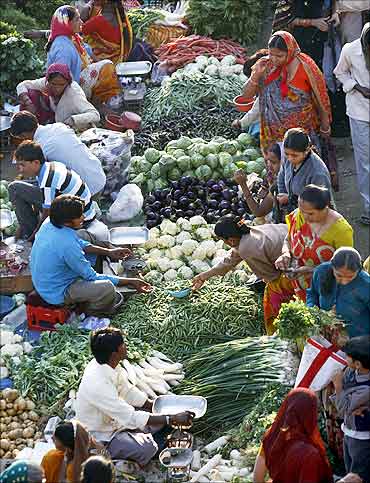
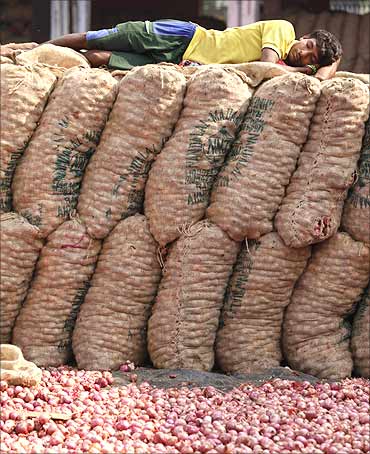

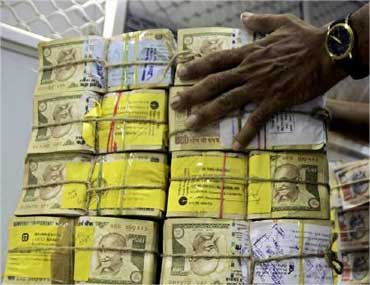

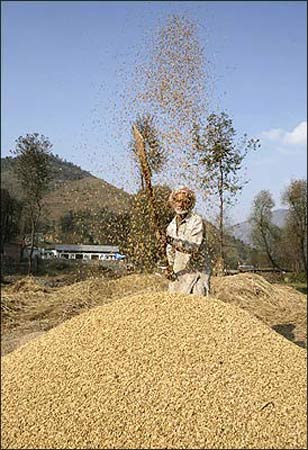
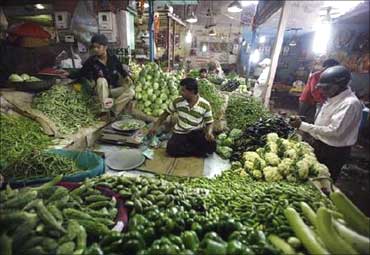

article